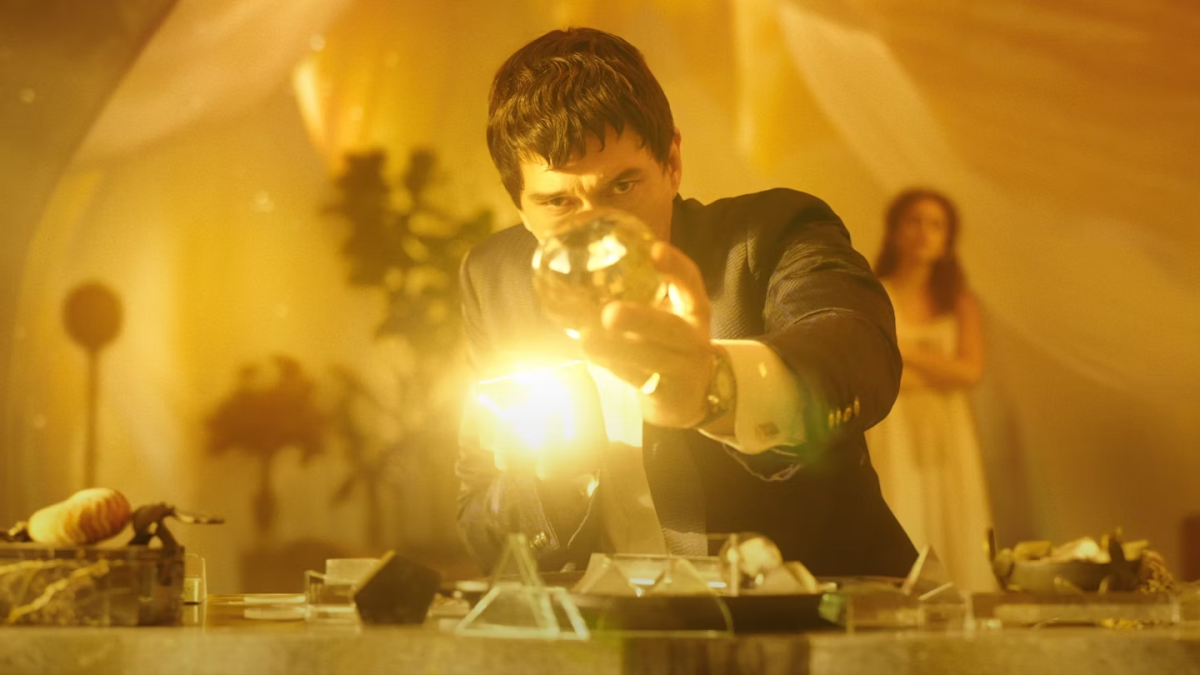Megalopolis Review: Francis Ford Coppola Delivers Disappointing Chaos

- Oops!Something went wrong.Please try again later.
- Oops!Something went wrong.Please try again later.
- Oops!Something went wrong.Please try again later.
Sometimes, a film warrants a few days of rumination before you even try to unpack what the author was trying to tell you. When you see "A Film by Francis Ford Coppola", you can expect that you are walking into one such movie. You expect boundaries to be pushed, like in 1979 when Apocalypse Now opened with "The End" or even earlier in his filmography with his epic three-hour The Godfather, which still holds the number-two spot on IMDb's Top 250 decades later.
So when Megalopolis became mythical before "action" had ever been called on set, people were expecting magic. Coppola swinging for the hills with $100+ million of his own cash to make an epic story about utopia in the wake of disaster? Yes, please.
Perhaps that anticipation has become the film's Achilles’ heel because what was shown in Cannes can only be described as disappointing chaos that looks like it was made on pennies.
Yet there's something so compelling about watching it all go down. It's like witnessing history unfold in real-time – utterly appalling, yet you cannot look away. It's theatrical, with grand settings and long monologues, a musical number, a bit of Shakespeare, but nothing brings all of it together that warrants wasting precious minutes in its presence.
Ahead of screening for the first time, rumors from the set flooded the media. An anonymous crew member told The Guardian that making Megalopolis "was like watching a train wreck unfold day after day". Now and then, you watch a film which makes it easy to see the type of environment it was made in.
Sarah Polley and her cast spoke openly at the 2022 New York Film Festival press conference about the making of Women Talking. They gushed about how refreshing it was to make something in the presence of someone who cared about them as people and actors. Polley said that the experience of making the movie was more important than the end product. The result: an Oscar-winning movie.
Just last year, Barbie hit the big screen, and every cast member raced to share their experience, describing it as joyful, calling Greta Gerwig a breath of fresh air. In 2019, we got the first film made on the inclusion rider initiative, Just Mercy, which tells an important story with compassion, including people with lived experience who amplify the film's authenticity.
Megalopolis is one of those unfortunate incidents where it is a product of the negative stories. They all seem utterly believable when watching the two-plus hour madness.
While The Guardian highlights that there were also positive stories from the process of making Megalopolis, the shadier narratives seep through more prominently, and as time ticks on, they only leap out further and further until they are impossible to ignore.
Aubrey Plaza must be praised for arguably being the only person in the film who knew what movie they were making. In a film where there is no one to like and no one to root for, she holds it together as Wow Platinum, a role written to be comedic, which succeeds only because of Plaza's identity.
Shia LaBeouf's presence is distracting and uncomfortable. His role is bizarre and indescribable. He's the vengeful cousin of Adam Driver, who dresses in drag for no reason at all and has an awkward and clumsy scene with Plaza, which people will likely get a few laughs from despite its absurdity.
Adam Driver is doing his best to make sense of what little there is.
Perhaps a well-read student of philosophy who has spent hours indulging in all the literature Coppola has referenced throughout the film will find what was missing from Megalopolis and enlighten us all. There will likely be cries of "masterpiece", and people who are staunch defenders will herald it as the best thing he's ever made. But there are valid reasons why no studio has expressed interest in entangling themselves with the chaos: it simply isn't marketable, and regular audiences are likely to want a refund after ten minutes of the madness.
Yet despite all of this, you have to respect an author making a movie that truly is whatever they wanted it to be in 2024. It is a rare honor bestowed on very few, and Coppola has the cash to burn, so let him. It may be worth it to satisfy a creative itch, but next time, perhaps we don't all need to indulge in it.

